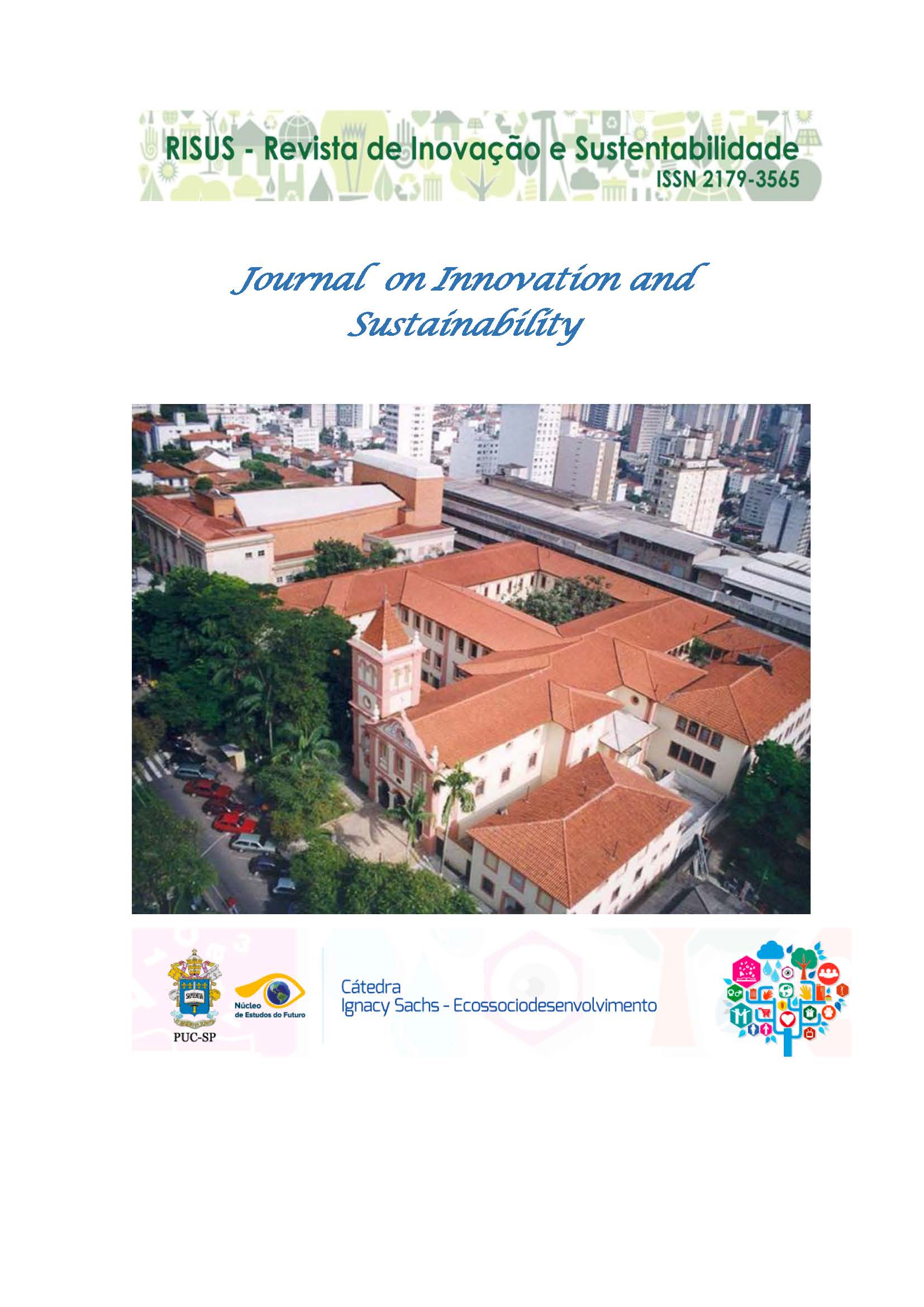Exploring the perceptions and practices of pre-service Teachers for environmental consciousness in Punjab
DOI:
https://doi.org/10.23925/2179-3565.2022v13i2p124-134Keywords:
Environmental Consciousness, Pre-service Teachers, Environmental Education, PracticesAbstract
Present study aimed to assess the perceptions, beliefs and practices of pre-service teachers regarding environmental consciousness. It followed a survey research design to find out the frequencies/ percentages of the respondents. Accessible population of this research included the pre-service teachers of public sector teacher education universities of Punjab. A sample of 350 respondents was selected using a stratified sampling technique. An adapted questionnaire was used for getting the responses of pre-service teachers regarding their knowledge of environmental consciousness. The study concluded that inclusion of environmental education into syllabus and active role of teachers in environmental protection were the major perceptions of pre-service teachers. Similarly, major beliefs involved consciousness helps students explore relationship between environmental education and social issues, strict actions strict action against organization producing pollution and equal effect of environmental pollution on every individual. Female teachers were more involved in ensuring clean environment as compared to male pre-service teachers. It was recommended that policy makers should focus to include environmental education as an essential part of the curriculum of teacher education programs. Male teachers are required more to improve practices regarding environmental consciousness.
References
Ahmad, I., Bukhari, M. H., Azhar, M., Khan, S. A. Relevance of Foreign Direct Investement for Sustainable Development in Pakistan. International Transaction Journal of Engineering, Management, & Applied Sciences & Technologie,2019, 10(18),1–14. https://doi.org/10.14456/ITJEMAST.2019.254
Alsmadi, S. Green Marketing and the Concern over the Environment : Measuring Environmental Consciousness of Jordanian Consumers. Journal of Promotion Management, 2008, 13(3),339–361. https://doi.org/10.1080/10496490802306905
Alvarez-Garcia, O., Sureda-Negre, J., Comas-Forgas, R. Environmental Education in Pre-Service Teacher Training : A Literature Review of Existing Evidence. Journal of Teacher Education for Sustainability, 2015, 17(1), 72–85. https://doi.org/10.1515/jtes-2015-0006
Bansal, G. E-Book Usage : Role of Environmental Consciousness, Personality and Past Usage. Journal of Computer Information System, 2015, 93–104. https://doi.org/10.1080/08874417.2011.11645544
Bhandari, M. P., Bhattarai, K. Institutional Architecture For Sustainable Development (SD): A Case Study from Bangladesh, India, Nepal, and Pakistan. Socio Economic Challenges, 1(3), 6–21, 2017.
Bozdemir, H., Kodan, H., Betül Akdas, H. Primary School Teacher Candidates ’ Offers to Primary School Students About Environmental Consciousness. Procedia - Social and Behavioral Sciences,143,649–656, 2014. https://doi.org/10.1016/j.sbspro.2014.07.457
Buchanan, J., Griffin, J. Finding a Place for Environmental Studies: Tertiary Institutions as a Locus of Practice for Education for Sustainability. Journal of Teacher Education for Sustainability, 2010, 12(2), 5–16. https://doi.org/10.2478/v10099-009-0050-1
Christie, B. A., Miller, K. K., Cooke, R., White, J. G. Environmental sustainability in higher education : how do academics teach ? Environmental Education Research, 2013, 19(3), 385–414. https://doi.org/10.1080/13504622.2012.698598
Effeney, G., Davis, J. Education for Sustainability : A Case Study of Pre- service Primary Teachers ’ Knowledge and Efficacy. Australian Journal of Teacher Education, 38(5),2013.
Evans, N. S., Ferreira, J. What does the research evidence base tell us about the use and impact of sustainability pedagogies in initial teacher education ? Environmental Education Research, 26(1), 27–42. https://doi.org/10.1080/13504622.2019.1703908,2020.
Ferreira, J. A., Ryan, L., Tilbury, D. Mainstreaming education for sustainable development in initial teacher education in Australia : A review of existing professional development models. Journal of Education for Teaching, 2007, 33(2), 225–239. https://doi.org/10.1080/02607470701259515
Hiramatsu, A., Kurisu, K., Hanaki, K. Environmental Consciousness in Daily Activities Measured by Negative Prompts. Sustainability, 2016, 8(24), 1–19. https://doi.org/10.3390/su8010024
Joon, V., Kumar, K. An Assessment of Environmental Consciousness Level of University Students of Hisar City. Journal of Human Ecology, 2017, 28(2), 149–151. https://doi.org/10.1080/09709274.2009.11906231
Kennelly, J., Taylor, N., Maxwell, T. Addressing the Challenge of Preparing Australian Pre-service Primary Teachers in Environmental Education. Journal of Education for Sustainable Development, 2(2), 141–156,2008.
Kennelly, J., Taylor, N., And Serow, P. Early career primary teachers and education for sustainability. International Research in Geographical and Environmental Education, 2012, 21(2), 139–153. https://doi.org/10.1080/10382046.2012.672680
Khushik, F., Diemer, A. Critical Analysis of Education Policies in Pakistan : A Sustainable Development Perspective. Social Science Learning Education Journal, 2018, 3(9), 1–17. https://doi.org/10.15520/sslej.v3i09.2282
Mandikonza, C., & Lotz-Sisitka, H. Emergence of Environment and Sustainability Education ( ESE ) in Teacher Education Contexts in Southern Africa : A Common Good Concern. 5(1), 107–130, 2016.
Mathur, V., & Kumari, K. . M. Environmental Consciousness : An indicator of Higher Consciousness. International Journal of Scientific and Research Publications, 3(8), 1–5, 2013.
Sasaoka, S. Environmental Consciousness of ASEAN Citizens. Japanese Journal Of Political Science, 2014, 15(2), 183–202. https://doi.org/10.1017/S1468109914000036
Shah, D. D., Khan, D. M. I., Yaseen, D. M., Kakli, M. B., Piracha, Z. F., Zia, M. A., And Javed, M. I., 2021, Pakistan Education Statistics.
Tomas, L., Girgenti, S., Jackson, C. Pre-Service Teachers ’ Attitudes toward Education for Sustainability and its Relevance to their Learning : Implications for Pedagogical Practice. Environmental Education Research, 2017, 23(3), 324–347. https://doi.org/10.1080/13504622.2015.1109065
Tuncer, G., Tekkaya, C., Sungur, S., Cakiroglu, J., Ertepinar, H., And Kaplowitz, M. Assessing Pre-service Teachers ’ Environmental literacy in Turkey as a mean to develop Teacher Education Programs. International Journal of Educational Development, 2009, 29, 426–436. https://doi.org/10.1016/j.ijedudev.2008.10.003
Wolff, L., Sjöblom, P., Hofman-Bergholm, M., Palmberg, I. High Performance Education Fails in Sustainability ? — A Reflection on Finnish Primary Teacher Education. Education Sciences, 2017, 7(32), 1–22. https://doi.org/10.3390/educsci7010032
Yavetz, B., Goldman, D., Peer, S. Environmental Literacy of Pre ‐ Service Teachers in Israel : A Comparison between students at the onset and end of their studies. Environmental Education Research, 15(4), 393–415, 2009. https://doi.org/10.1080/13504620902928422

Downloads
Published
Issue
Section
License
This Journal is licensed under a Creative Commons Attribution-Non Commercial-No Derivers 4.0 International license.
1.The author (s) authorize the publication of the article in the journal;
2.The author (s) warrant that the contribution is original and unpublished and is not in the process of being evaluated in other journal (s);
3. The journal is not responsible for the opinions, ideas and concepts emitted in the texts, as they are the sole responsibility of its author (s);
4. The editors are entitled to make textual adjustments and to adapt the articles to the standards of publication.

